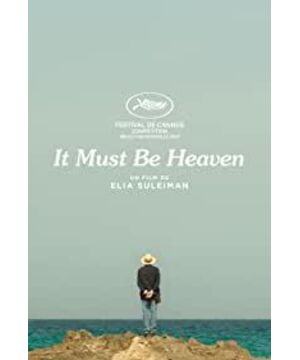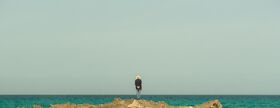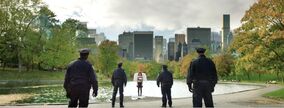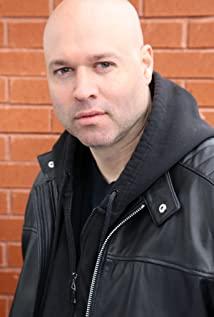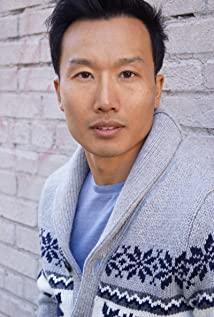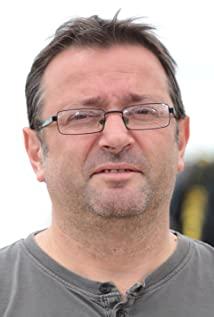Cinema Easy Read 2.0
Have you ever seen a movie where the main character has only two lines? If not, then you shouldn't miss this "Mr. Director's Perfect Vacation" brought by a Palestinian director. Through whimsy and humor, it jokingly mocks Palestine, film production, and the problems of France and the United States, but it doesn't It is too sharp, and you may also arouse a lot of déjà vu in the process of watching the movie. Let us follow the director Suleiman and take a trip to heaven between looking at him and seeing what he sees.
The story begins with Suleiman's daily life in his hometown. Day after day, he waters his little tree and encounters his daily life, such as a vicious gangster in the countryside, or living next to him, and likes pointing at his lemon tree. , the neighbor who was doing things, said when he was found: "I'm doing this for your own good." Or another neighbor who came to him and told a strange story about a snake's repayment one after another.
From time to time, he would drive to the border, take a look at the border, look at the cacti, look at the container above his head, the woman who took a few steps forward and took a few steps back. They are not only daily life, but also a metaphor to be solved, a kind of borrowing. A neighbor can be the epitome of a neighboring country, an old man can be the epitome of a history, and a woman can be the epitome of a culture.
As a Palestinian living in Lazarus, Israel, he does not prohibit alcohol like Muslims, but drinks like Jews. Whenever he is in a good mood, he will have a cup. When he is in France and America, he will have a cup when he is in a good mood. language is not religious, just as boundaries are not religious to him.
They exist in a fluid form, like the contents of his cloudy cup.
He needs a trip, he has no strong desire to travel, and there is no reason to go, just he needs to go. He just dropped by to have a look, dropped by for office, dropped by for vacation, everything was casual and without drama, just like the tone of the whole film, it was more about his interest in life and his love for locals and foreigners The viewing of life, in this film his emotional expression of the land comes from capturing, arranging, and reproducing human life, or it can be called scene scheduling.
Before leaving, he planted the small tree in the family into the soil.
You can see that when Suleiman handles his role, he seems to have built a wall between himself and the people around him. You can't see his physical interaction with other people, as if he does not exist. He is not staring at this everything, but watch it all, what's the difference? The former is aggressive or at least somewhat defensive in terms of what others are trying to drill or prevent others from drilling, however viewing is more fluid so you see Suleiman's vision like the movement of the camera It is generally fluid. Once someone finds him watching, he will be very disturbed, and if other people want to interact with him, he will either respond with simple body language, or run away in a hurry, or cut it out with clipping. (For example, there were at least two symposiums in which he was cut before or after he was asked a question.) Another example is a couple who met in France in the film and came to find "Brigitte Bardot". ” of the Japanese couple, he immediately ran away in a hurry, but looked at them again.
The other time he was forced into the station from behind by a young man, the two met eyes on the subway, and the young man left the carriage to throw garbage cans and returned to the carriage. Suleiman's emotional ups and downs showed us his depression. .
What is he running from?
In the dream, everyone is armed. Just as the Israel-Arab issue is not just a local issue, it is also an international issue. Similarly, there is also a possibility of internationalization. People are usually in modern supermarkets and streets. of all kinds of weapons, and live an ordinary life.
He woke up.
His travels in Paris are static, he is either sitting upstairs or in a café, or in front of the Fountain Square, he is watching a life full of tensions, where violence is aestheticized, whether it's policemen on inline wheels Either the sudden appearance of the tank, or the soaring plane in the sky, all had a fatal attraction for him to watch, they came in line with the Holy Number Three, the mundane passing of various forms of national violence, and Sulei. Mann also captured the collection of toilets that followed after the cavalry pair passed by, which most poor countries do not have, so wherever their violence goes, there is no possibility of whitewashing and ending, only extremely ugly. Barren state is released to the world.
Under the fascination with foreign countries (for example, the unabashed watching of women on the street) and the watching of women seen in the local are integrated together, why does he watch, watching has far-reaching implications Formed an ambiguous area between what is worth solving and what is not worth solving. Watching is most of his actions in the film. He is not watching while running or lying down, but just standing and watching, while occasionally allowing himself to be integrated. Into the camera, so that it becomes one of the scenery we watch. If the film is the embodiment of the director's thinking, then Suleiman's practice of making his own life a creation, and making a creation a life can be said to be a kind of thinking. To escape, he wants to delay the moment when he draws a conclusion, he wants to let it all spread, and express his anxiety about the coexistence of violence and life with the most vivid scenery and the most life-like plot. Capture, such as the competition for seats in the fountain park, is a kind of real life, but as mentioned earlier, it can also be a political metaphor, such as the competition for seats in an international organization.
We later learned that "Mr. Director's Perfect Vacation" is the film he is making in the film. This kind of post-setting interest also confuses the boundary between creation and documentary, just like the landscape between creation and documentary that happened in the film. , it is difficult for us to really give a clear picture of which is Suleiman's reproduction of the place and which is the plot of the design. The tanks and cavalry teams in the city and the planes in the air are all preparing for the military parade, and The military parade is a real event, shown on TV as a special daily routine.
And when they appeared, Suleiman kept staring at them. The lack of traffic on the street might remind him of a certain chilling atmosphere, just as the whizzing plane reminded him of Israel's irregular bombing of his hometown.
He hides his emotions very deeply. An old urchin tries to hide his emotions in the appearance of curiosity about the world, so that he deliberately excludes his own language and his interactions with others, and will most 's interactions are reserved elsewhere, such as over the teasing of a bird, where he's showing "I'm going to finish my movie, don't stop me," while also finishing his own. This is a cunning trick. It raises the threshold of viewing your own thoughts and thoughts, making you have to be patient and concentrate on what he is looking at and his subtle facial expressions, such as the frown and the tilted head. ,a smile.
However, Suleiman still missed the filling after all. In a taxi, he finally spoke back because of a problem with the driver.
"Where are you from, sir?"
"Nazareth.",
"Which country are you from?"
"I am Palestinian"
In this scene, Palestine is, as usual, confused with Israel. Of course, this may be because Suleiman said that Nazareth itself is a city in Israel but highly Arab, as mentioned above. In other words, the hometown he lives in is itself a fluid product, not just a purified hometown, which means that a homeland of racial and religious or cultural homogeneity can never be what he wants.
He can't become a citizen of the world, but a stranger in the world, because no matter where he goes, he always has a hometown in his mind. The paradox of travel is that when we are farther away from our hometown during the day, the closer we are at night. , Mr. Director went home. The next morning when he came home, he slowly rose from the top of the wall and found that the neighbors did not take special care of the small tree he planted.
He went to the border again, to the cactus again, to the sparse woods again looking for the girl, and this time they met eyes, between the sparse woods.
Finally, in the ballroom, he watched the young people dance fiercely to the music and laughed. The world is changing with each passing day. New shoots will eventually break through the walls. The young Palestinians are the hope for the future. This is the conclusion of this trip to Zurich. The future of Palestine is not outside, but here, underground, young seedlings are gradually thriving, let those bullshit things go to hell .
The meaning of "Mr. Director's Perfect Vacation" is very special to Taiwanese, probably Suleiman never dreamed of it,
The film's trip to another island on the other side of the world, not recognized by the United Nations, will make other young people resonate with the situation he presents.
After all, as far as the United Nations is concerned, we do not exist, yet as far as ours is concerned, we are incomparably real.
So go to the United Nations, we have our own incomparably real life, and life is full of metaphors. Suleiman's way of confrontation is not a direct response, but tortuously incorporate them into the light and shadow of life.
"People all over the world drink to forget, only you drink to remember."
I think I will remember the scene where the girl escaped from the American police, where Suleiman showed the tenderness of his care for his hometown by mobilizing one stroller after another to defend the flag on the girl's breast.
View more about It Must Be Heaven reviews


